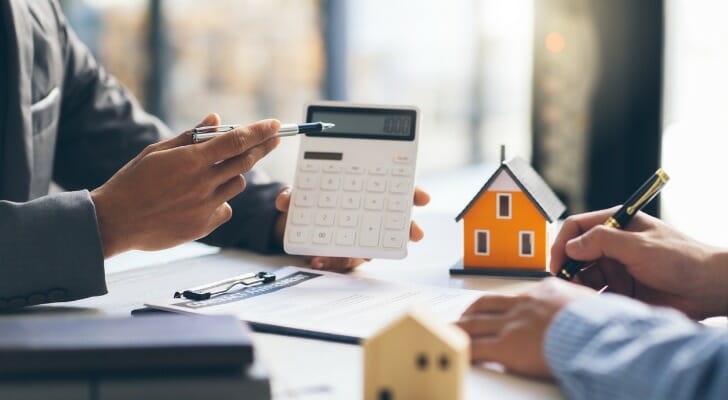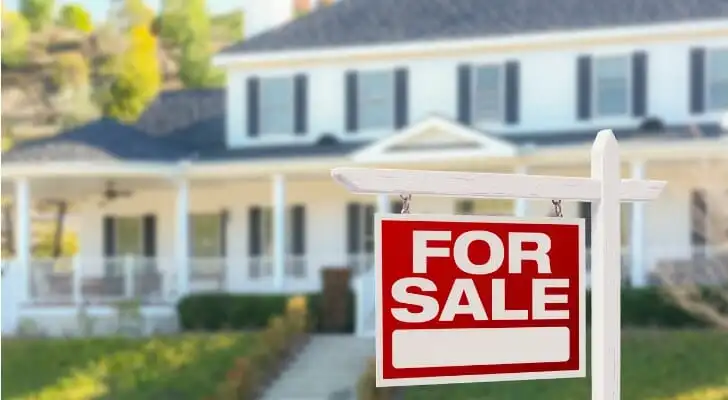Selling your house is a major financial transaction. Whether you’re downsizing, upgrading or moving for another reason, you need to know what to expect. After all, you want to get the most you can out of your investment, and part of that is knowing what costs you’ll need to pay to sell your house. If you’re wondering “how much does it cost to sell a house?” we’ve got the answers for you. A financial advisor can help you make major financial decisions, like buying or selling a home.
How Much Does It Cost to Sell a House?
On average, it costs around 10% of the sale price to sell your house. This can vary depending on factors like location, real estate agent commission and any money you’ve spent on repairing the home before selling it. There are actions you can take to lower this percentage but know that a lot of these expenses aren’t negotiable.
What Costs Should You Expect?

There are several costs you’ll incur when selling your house. Some of these can vary depending on your situation. For instance, you may not need to make many repairs or upgrades, or maybe you’re in a state that charges fewer taxes. Regardless, you’ll need to work some, if not all, of these costs into the plan for your home sale.
Repair and Upgrade Costs
If you’re selling an older home, there’s a good chance it will need some upgrades or repairs. For instance, the refrigerator or range may be due for replacement. It’s important to know what upgrades will pay off. If you suspect there are any issues with the home, you may want to pay for an inspection before listing. This usually costs $300 to $500, according to Realtor.com.
If you uncover some issues, you’ll need to fix them or disclose them when accepting an offer on the house. While upgrades and repairs can be costly (expect on average a cost of $3,000 to $5,000, unless a major repair is needed), they can get you a higher sale price and make your home easier to sell.
Taxes
No one likes to pay taxes, but unfortunately, some are unavoidable. There are three types of taxes you should consider when selling your house:
- Property tax: You’ll need to pay the property tax on the property up until you close. These are prorated until ownership is transferred. If you’ve already paid for the year, you may get a rebate at closing.
- Transfer tax: Depending on where you live, you may need to pay a deed transfer tax. This is a fee put on the sale of a house to pay for the work the government does to track and transfer ownership of the property.
- Capital gains tax: If the home you’re selling isn’t your primary residence, you may have to pay capital gains tax. If it is your primary residence, you’ll only need to pay if you’re profiting by $250,000 or more if single, or $500,000 if married and filing jointly.
Mortgage Payoff
If you have a mortgage on the house, a good portion of your sale may go to pay off the mortgage. While this may seem cut and dry, one important thing to consider is if your mortgage has a hard prepayment penalty. This is when a lender charges you for paying off the mortgage early, even in the case of a home sale. While most lenders do not charge these, it’s common enough that it’s worth asking about.
Real Estate Agent Commissions
When it comes to selling a home, real estate agent commissions comprise a significant portion of those costs. Typically, sellers pay the commissions of both the buyer’s agent and the seller’s agent. Expect this to be 5% to 6% of the sale price.
If you’re selling your home yourself – without a real estate agent – you won’t have to pay for a seller’s agent, but the buyer may want you to pay for their own agent. In a competitive seller’s market, you may be able to get the buyer to pay the commission as part of negotiations. However, this can turn off prospective buyers and you may not find someone to agree to it. Just keep in mind that you may need to pay this commission if it’s a buyer’s market.
Additional Closing Costs
Closing costs are additional costs you’ll pay when you close on your house. On top of taxes and commissions, they include title insurance, attorney fees, escrow fees and any concessions or closing credits you’ve agreed to pay the buyer. If you want to estimate your closing costs, use our handy closing costs calculator.
Moving Costs
Before you hand the keys over, you’re going to need to get your stuff out of the home. Even if you’re able to enlist family and friends to help you move, you may still need to rent a trailer, pay for gas and pay for packing supplies. At a minimum, you’ll probably spend a couple hundred dollars.
If you’re paying for professional movers, expect the costs to break into the thousands. Remember that distance has a lot to do with costs, too. If you’re moving locally, the average costs range from $917 to $2,532, according to Home Advisor.
How Are a Seller’s Costs Paid?
Most of the seller’s costs are paid at the closing table. Things like taxes, commission and other fees will come directly out of the sale. This is convenient, as you won’t have to come up with cash from another source.
On the other hand, the seller’s costs to prepare the property for sale will come out of pocket. That means you’ll need to pay for repairs, upgrades and the costs to clean and stage the home. If you have a buyer, you may be able to negotiate a lower home price instead of paying for repairs if you don’t want to pay in cash.
A Breakdown of Costs

Let’s work through an example to answer “how much does it cost to sell a house?” The median home sale price for the past couple of years has been hovering around $400,000, so we’ll use that amount for this example. The costs listed here are based on national averages, with some being flat fees and others being percentages of the sale price. Keep in mind that these are estimates and that your costs may vary.
- Sale price: $400,000
- Mortgage payoff: $200,000
- Real estate commissions: $24,000 (6%)
- Attorney fees: $500
- Escrow fees: $2,000 (0.5%)
- Home improvements before selling: $5,000
- Moving costs: $1,200
- Additional closing costs: $4,000 (1%)
- Costs incurred when between homes: $4,000 (1%)
With those costs subtracted, you’re left with $159,300. Not including the mortgage payoff, the costs account for just over 10% of the sale price.
Bottom Line
Selling your home can come with some unavoidable costs. In general, it’s good to expect to pay 10% of the sale price in costs to sell. Remember that you’ll also need to pay off your mortgage if you still have one. While these costs may seem high, most of them are necessary and some, like renovations and agent commissions, can help you get the most out of your home sale.
Tips for Selling and Investing
- If you’ve received a large windfall from selling your home, it’s best to consult a financial advisor and put that money to work. Finding a financial advisor doesn’t have to be hard. SmartAsset’s free tool matches you with up to three vetted financial advisors who serve your area, and you can interview your advisor matches at no cost to decide which one is right for you. If you’re ready to find an advisor who can help you achieve your financial goals, get started now.
- Selling your house is one option, but maybe you’d be better off turning it into an investment property. Renting out your house could produce solid long-term profits.
- If you make over $250,000 in profit when selling your home (or $500,000 if you’re married), you’ll want to be cognizant of your capital gains tax liability. SmartAsset’s capital gains tax calculator can help you estimate how much you may owe the government after selling your home.
Photo credit: ©iStock.com/Feverpitched, ©iStock.com/Dean Mitchell, ©iStock.com/Perawit Boonchu
